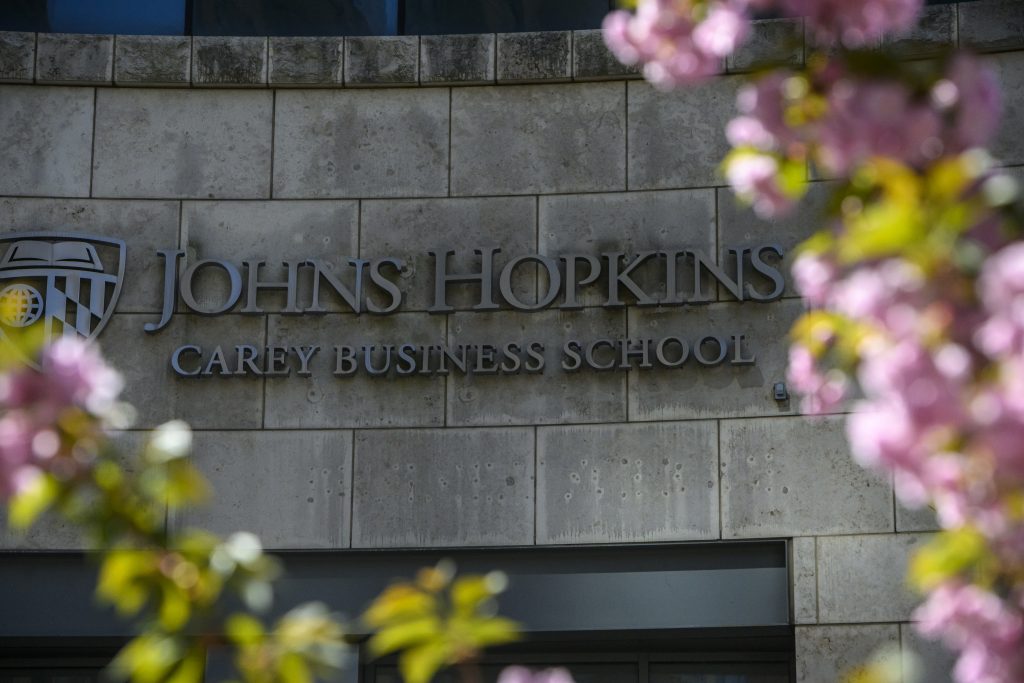
 Dr. Nazli Turken, an Associate Professor of Practice at the JHU Carey Business School, studies the environmental and social sustainability of supply chains.
Dr. Nazli Turken, an Associate Professor of Practice at the JHU Carey Business School, studies the environmental and social sustainability of supply chains.
To conduct this research, Dr. Turken uses both mathematical models and qualitative methodologies, along with two approaches — reactive and proactive. In the reactive approach, she builds mathematical optimization models to study companies’ responses to environmental regulations in their supply chains. Alternatively, the proactive approach explores more holistic strategies including circular economies, industrial symbiosis, and biomimicry, and their impact on supply chains.
We sat down with Dr. Turken to learn more about her research:
Describe the intention of your research as it relates to sustainability.
“As someone in a business school and with an industrial engineering background, I know that the goal of most firms is to maximize profit,” says Dr. Turken. “I find profit-maximizing firms’ optimal responses to local environmental regulations and the subsequent impacts throughout their supply chain.”
“My intention is to identify win-win scenarios,” she says. “The combination of supply chain policies and environmental regulation that reduces both cost and environmental impact.”
What is the importance of environmental research in this field?
“In the business context, the word sustainability means the ability of firms to exist now and in the future,” says Dr. Turken.
There are many environmental problems that have costly impacts on firms and supply chains, she says. Extreme weather events, for example, can disrupt raw material acquisition and transportation, causing crippling effects down the supply chain and pressure from consumers. Preparing proactively for these types of events, says Dr. Turken, can ensure sustainability for businesses.
acquisition and transportation, causing crippling effects down the supply chain and pressure from consumers. Preparing proactively for these types of events, says Dr. Turken, can ensure sustainability for businesses.
Dr. Turken also studies greenhouse gas emissions of companies. “About 90% of them come from supply chains, so to reduce those emissions we have to look at supply chains and how we can make changes there,” she says.
What are the greater implications of your research? How could your findings contribute to a more sustainable future?
“What my colleagues and I find in most of our research is that sometimes local and regional environmental regulations may actually increase overall supply chain emissions,” says Dr. Turken.
“Sustainability research in supply chains can identify which scenarios might be cost efficient in the long term to convince companies to invest in green technologies.”
“Our research identifies scenarios and environmental regulations where the overall supply chain emissions decrease. For instance, strategically, the economic advantages of scale often surpass mild regulatory penalties, leading to higher supply chain emissions due to carbon leakage. Instead, substantial lump sum penalties with moderate limits effectively reduce both regional and transportation emissions. Although not the regulation our research suggests, the recent implementation of the Carbon Border Adjustment Mechanism (CBAM) in Europe is a remarkable solution for addressing this carbon leakage.”
In identifying these “win-win” scenarios, Dr. Turken must consider not only environmental best practices, but the firm’s interests and priorities.
“Research has come up with very innovative ways of reducing emissions, but if it costs too much or there is no return investment, companies are not going to implement it,” says Dr. Turken. “Sustainability research in supply chains can identify which scenarios might be cost efficient in the long term to convince companies to invest in green technologies.”
How did you become interested in this field?
Dr. Turken was first introduced to this intersection between business and environment during her senior year at Pennsylvania State University, where she received a B.S. in Industrial and Manufacturing Engineering.
At the time, Dr. Turken chose a project that focused on lead-free circuit board manufacturing. An environmental regulation limiting lead had recently passed in Europe, she says, and she recalls the panic of companies as a result. She knew, however, the negative health and environmental impacts of lead.
“I realized the importance of trying to find cost-efficient ways to convince companies to invest in green or clean technologies,” says Dr. Turken.
When Dr. Turken began her Ph.D. in Operations Management at the University of Florida, she was stuck between selecting environmental science or operations management as a focus area. With her background and interests in cost-reduction and profit-maximization, she pursued operations management — but has found a way to combine both interests and disciplines to contribute to a more sustainable future.